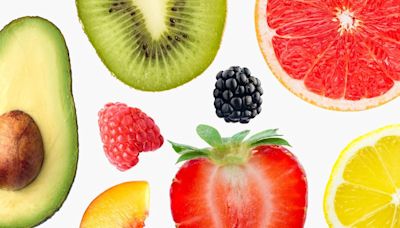Search results
Sugar is the generic name for sweet-tasting, soluble carbohydrates, many of which are used in food. Simple sugars, also called monosaccharides, include glucose, fructose, and galactose.
May 18, 2024 · sugar, any of numerous sweet, colourless, water-soluble compounds present in the sap of seed plants and the milk of mammals and making up the simplest group of carbohydrates. The most common sugar is sucrose, a crystalline tabletop and industrial sweetener used in foods and beverages.
May 23, 2024 · Adults, young adults and children in the U.S. consume on average 17 teaspoons of added sugar every day, more than 2 to 3 times the recommended amount for men and women respectively. This adds up to around 60 pounds of added sugar consumed annually — that’s six, 10-pound bowling balls.
Sep 27, 2021 · This Harvard Medical School Guide will help you gain a deeper understanding of the different formsof sugar, what foods contain significant amounts of added sugar, how sugaris metabolized by the body, and the health risks it poses when consumed to excess.
Sugar substitutes taste sweet but don’t contain sugar. They have fewer calories than sugar, and some have no calories at all. Foods labeled “sugar-free,” “keto,” “low carb” or “diet” often contain sugar substitutes, which fall into three categories: artificial sweeteners, sugar alcohols and novel sweeteners.
2 days ago · The safety of sugar substitutes is once again being called into question. Xylitol is associated with an increased risk of heart attack and stroke, according to new Cleveland Clinic research.
Too much added sugar can increase your risk of Type 2 diabetes, heart disease and obesity. But where is the line between what’s OK to consume and what might cause damage to your body?








